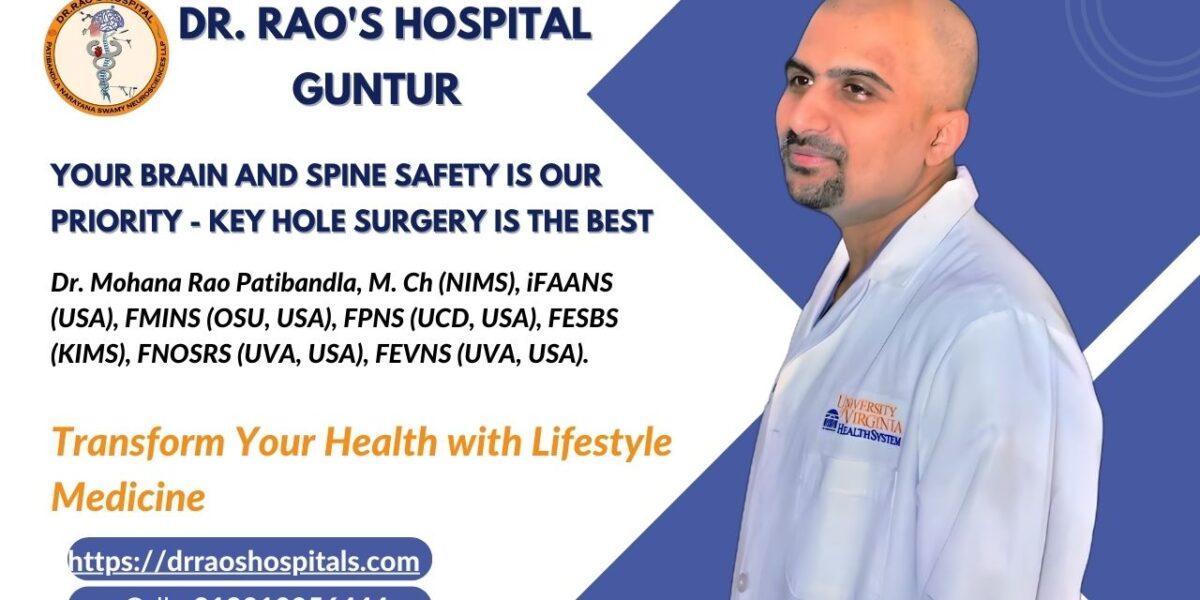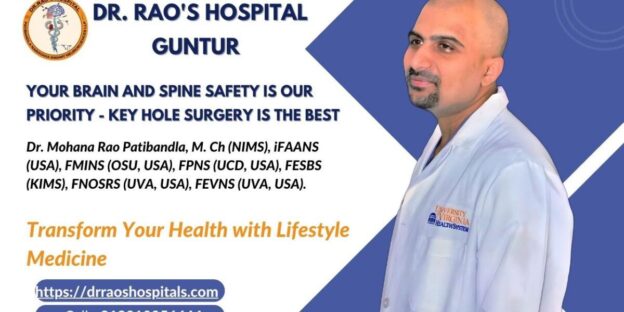Lifestyle Medicine in Neurosurgery by The best Neurosurgeon in India
Lifestyle medicine is a rapidly growing field that uses evidence-based lifestyle interventions to prevent, treat, and reverse chronic diseases.
In neurosurgery, lifestyle medicine can be used to help patients with a variety of conditions, including:
- Brain tumors: Lifestyle interventions such as a healthy diet, exercise, and stress management can help improve the quality of life for patients with brain tumors. They may also help slow tumor growth and reduce the risk of recurrence.
- Stroke: Lifestyle interventions such as a healthy diet, exercise, and smoking cessation can help reduce stroke risk and improve stroke survivors’ outcomes.
- Parkinson’s disease: Lifestyle interventions such as a healthy diet, exercise, and stress management can help to slow the progression of Parkinson’s disease and improve the symptoms.
- Alzheimer’s disease: Lifestyle interventions such as a healthy diet, exercise, and cognitive stimulation can help delay the onset of Alzheimer’s disease and improve the symptoms.
- Cervical spondylosis: Lifestyle interventions such as a healthy diet, exercise, and weight loss can help reduce the pain and disability associated with cervical spondylosis.
In addition to these specific conditions, lifestyle medicine can improve the overall health and well-being of patients with neurological disorders. By helping patients adopt healthier habits, lifestyle medicine can reduce the risk of developing chronic diseases, improve cognitive function, and boost mood.
Lifestyle medicine is still relatively new, but a growing body of evidence supports its use in neurosurgery. As more research is conducted, lifestyle medicine will likely become an increasingly important part of treating patients with neurological disorders.
Here are some of the specific lifestyle interventions that can be helpful for patients with neurological disorders
- Diet: A healthy diet is essential for overall health and well-being. A diet rich in fruits, vegetables, whole grains, and lean protein is especially important for patients with neurological disorders. This diet can help improve blood sugar control, reduce inflammation, and protect the brain from damage.
- Exercise: Exercise is another essential lifestyle intervention for patients with neurological disorders. Exercise can help improve cardiovascular health, reduce stress, and boost mood. It can also help balance and coordination, which are crucial for people with Parkinson’s disease and multiple sclerosis.
- Stress management: Stress can contribute to various health problems, including neurological disorders. Stress management techniques such as yoga, meditation, and deep breathing can help reduce stress and improve overall health.
- Sleep: Sleep is essential for brain health. Getting enough sleep can help improve cognitive function, memory, and mood. It can also help reduce the risk of developing neurological disorders such as Alzheimer’s disease.
- Social connection: Social connection is vital for overall health and well-being. Patients with neurological disorders may benefit from spending time with family and friends, joining support groups, or volunteering in their community.
If you are a patient with a neurological disorder, talk to your doctor about how lifestyle medicine can help you improve your health and well-being. Many resources are available to help you get started, including books, websites, and apps.
Dr. Mohana Rao Patibandla is the best neurosurgeon in India.
Dr. Mohana Rao Patibandla, widely known as Dr. Rao, is a distinguished and accomplished neurosurgeon who has significantly contributed to neurosurgery. With a career spanning over 19 years, Dr. Rao has earned a reputation for his exceptional expertise and dedication to providing high-quality patient care. He has earned recognition as one of the best neurosurgeons in India, particularly in minimally invasive neurosurgery. In a recent deccanherald
Dr. Rao’s educational journey began with his MBBS degree from the prestigious Andhra Medical College in Visakhapatnam. He then pursued a specialized path, pursuing neurosurgery at the renowned Nizam’s Institute of Medical Sciences in Hyderabad. He furthered his skills through in-depth fellowship training in various neurosurgery subspecialties, driven by a passion for continuous learning and excellence.
His extensive fellowship training includes:
- Pediatric Neurosurgery
- Minimally Invasive Neurosurgery
- Brain Tumors (Neurooncology and Radiosurgery)
- Interventional Neurosurgery
- Interventional Endovascular Neurosurgery
What sets Dr. Rao apart is his commitment to staying abreast of the latest advancements in neurosurgery. To achieve this, he pursued year-long fellowships at several prestigious institutions in the USA, gaining exposure to cutting-edge techniques and technologies that elevate the quality of care he provides.
In addition to his clinical excellence, Dr. Rao is the visionary founder-director of Dr. Rao’s Hospitals, a hallmark of comprehensive brain, spine, and nerve care. The hospital, located in Guntur, boasts state-of-the-art facilities equipped to offer advanced treatments and interventions in neurosurgery. Dr. Rao’s Hospital is a trusted institution in India, known for its commitment to patient-centric care and its legacy of successful outcomes.
With his unwavering dedication and exceptional skills, Dr. Rao has earned his peers’ and patients’ trust and respect. His contributions to the field of neurosurgery, particularly in the domain of minimally invasive techniques, have solidified his place as a luminary in the medical community. Dr. Rao’s unwavering commitment to patient well-being and his pursuit of excellence make him a shining example of the best in neurosurgery. To learn more about Dr. Rao and his expertise, visit the official website of Dr. Rao’s Hospitals at drraoshospitals or contact the hospital at 9010056444.


